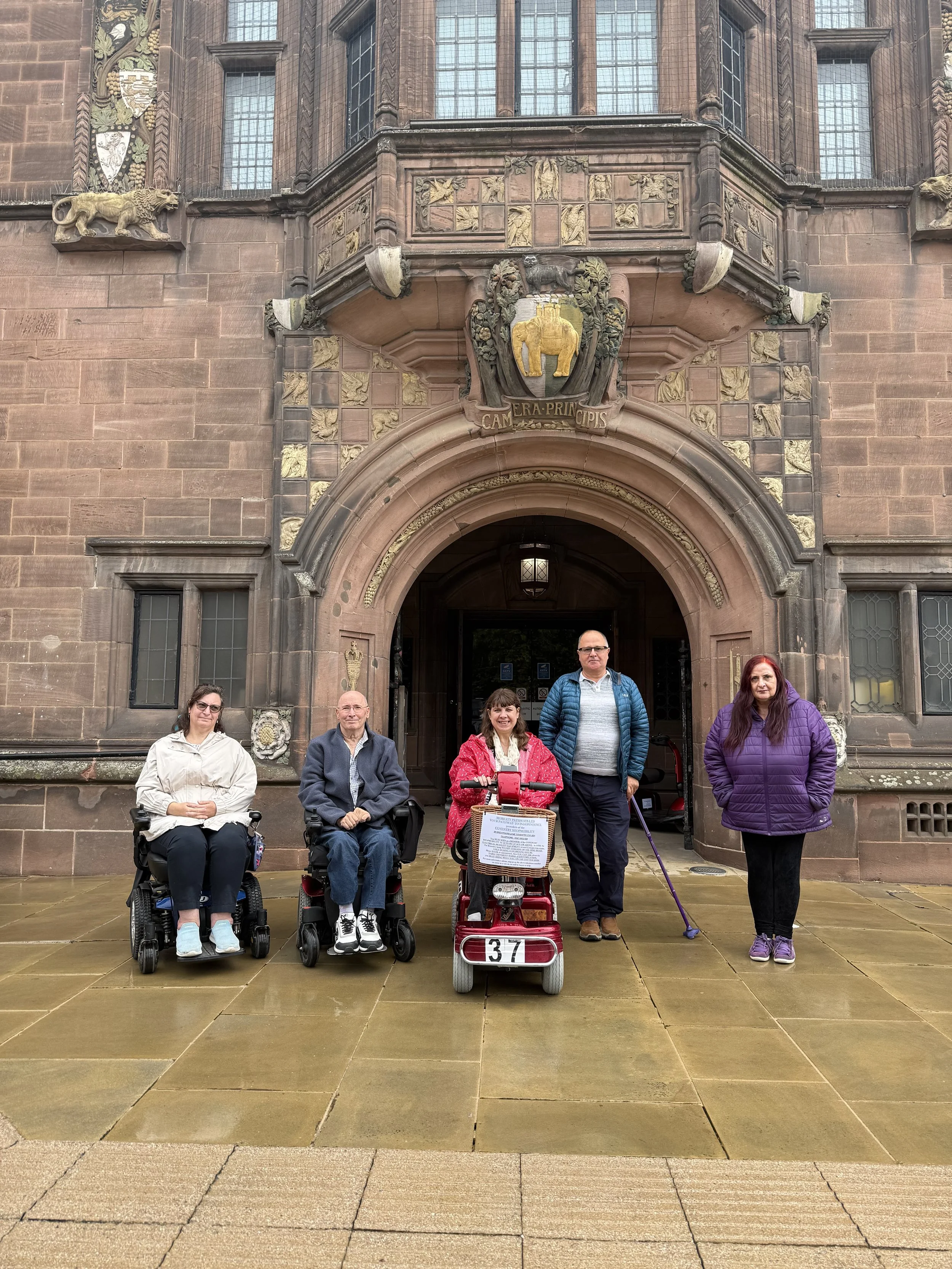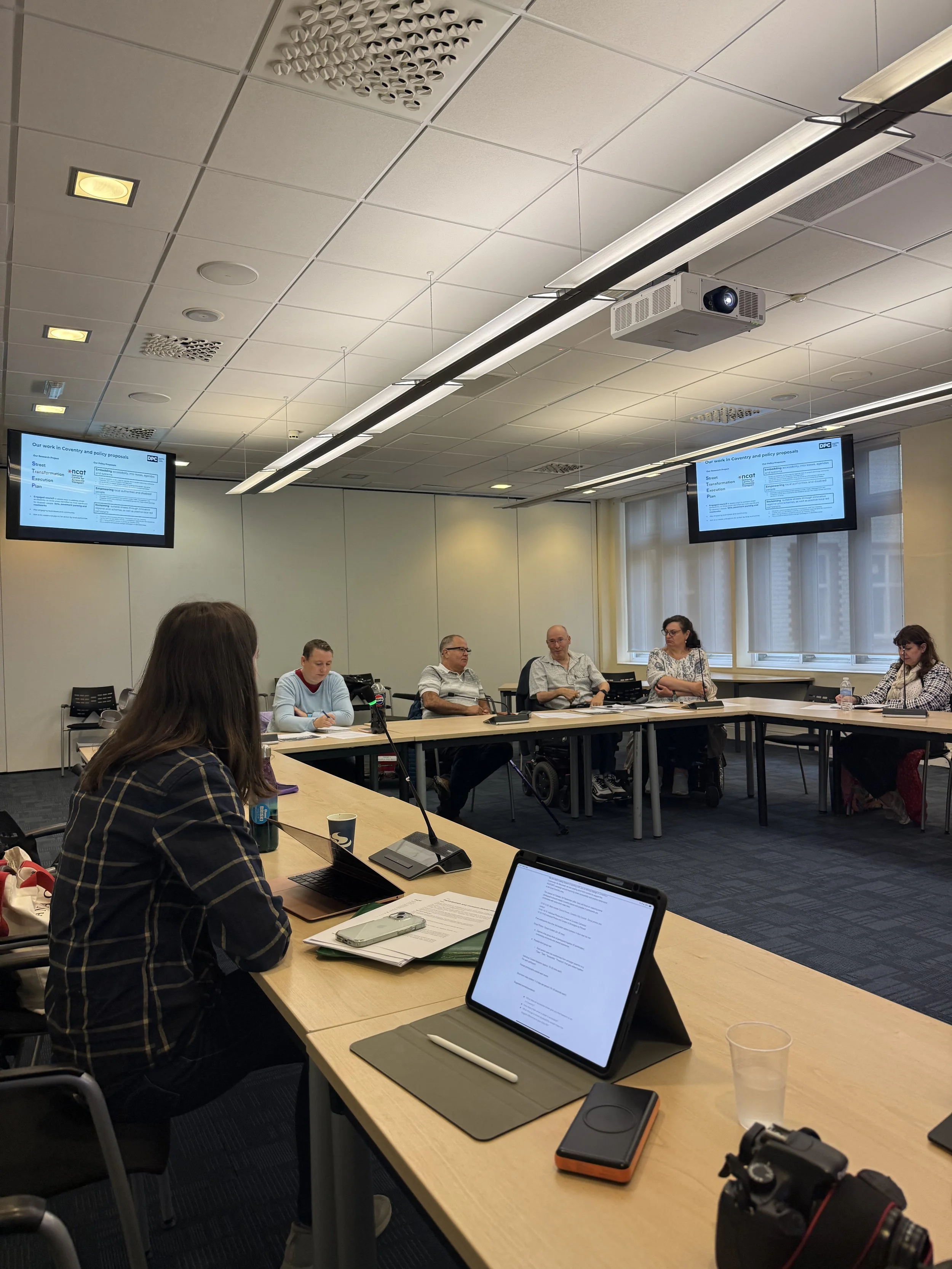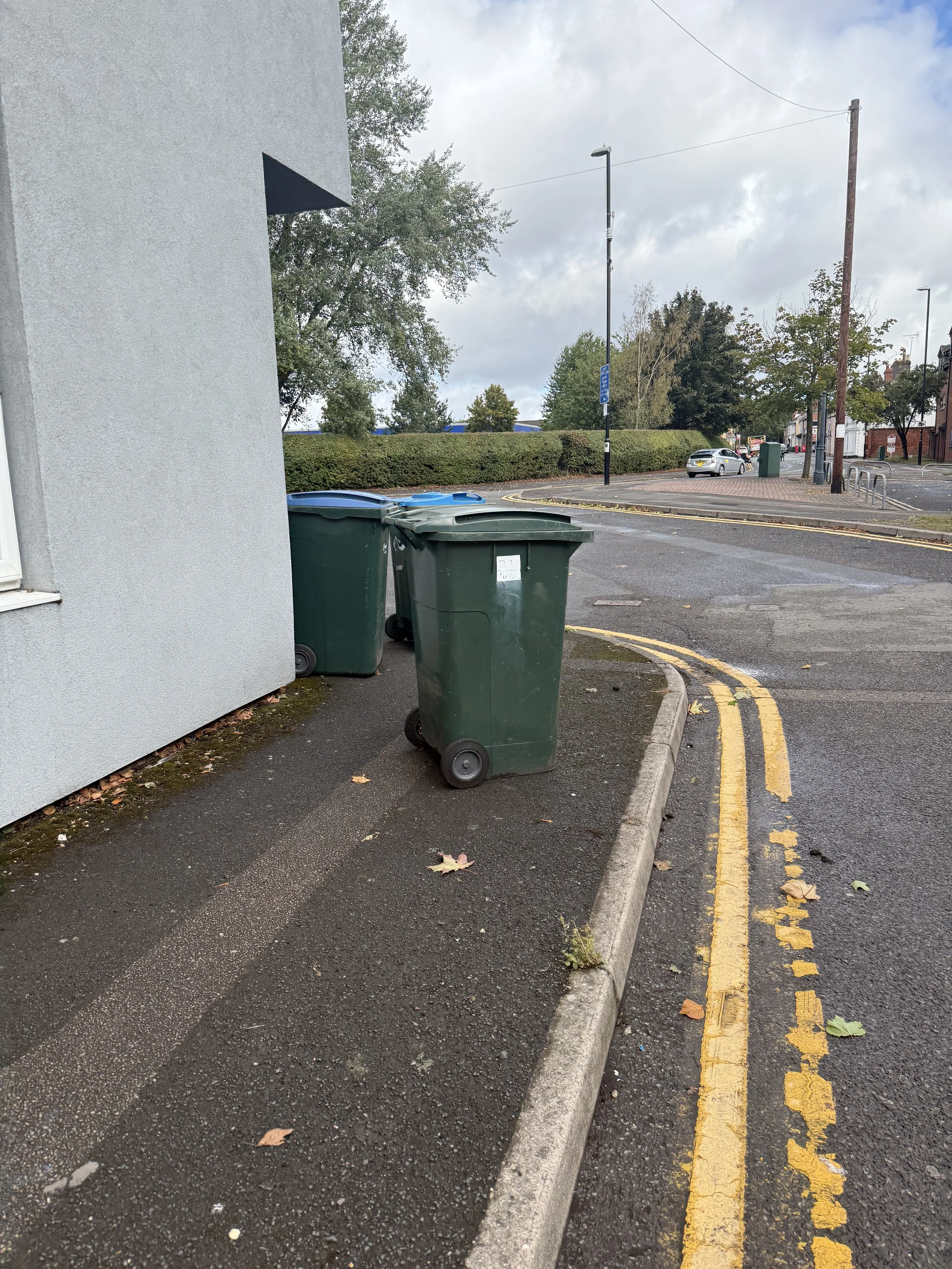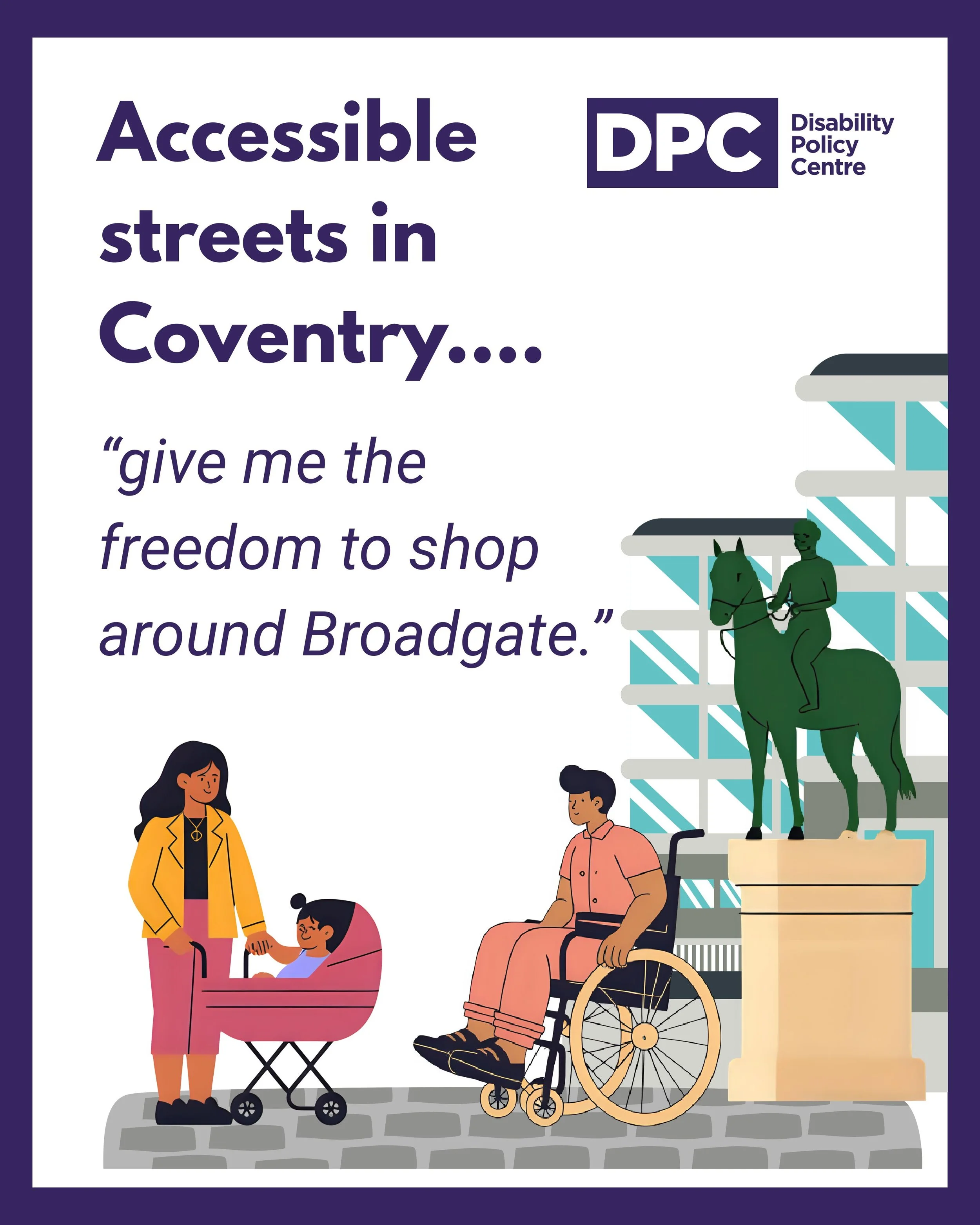
Improving Street Access:
A Blueprint for Change
We are delighted today to announce a new policy paper, funded by the National Centre for Accessible Transport’s (ncat) Scaling Innovation Programme, on how local authorities can take action on street access.
Set in Coventry, we conducted qualitative interviews with council representatives, with the support of Coventry City Council, to understand how to overcome barriers from pavement parking, bins and street clutter, as well as street and road works.
Alongside this, we spoke to three businesses operating within the Business Improvement District and held two focus group sessions with Coventry’s Disability Equality Action Partnership (DEAP), a local co-production group, where we tested our policy ideas and developed a blueprint for a behavioural change campaign.
We formalise our recommendations in our Street Transformation Execution Plan, or STEP, which sets out 12 actionable policy changes for all local authorities nationwide.
We recommend embedding street accessibility, so that it becomes a standing item in planning, agendas and decision-making, or that accessibility considerations are included in council-owned leases. This also includes considering social returns and the cost-benefits of greater enforcement.
We also recommend empowering local authorities and disabled people. Local authorities lack the powers to ban pavement parking, and must rely on a costly Traffic Regulatory Order (TRO) regime to implement changes. Shifting power back to councils is essential. This should include establishing an £8 million Department for Transport fund to support up to 10 councils in reviewing how pavement parking can be made the exception, simplifying the TRO process, and strengthening enforcement powers so that unnecessary obstruction of pavements can be treated as a civil offence under the Traffic Management Act, rather than a criminal one, in line with the government’s 2020 consultation. This can occur alongside empowering local disabled people, by leveraging disability networks to formally advise on transport decisions, or through digital tools that promote greater reporting and enforcement.
We also recommend reclaiming streets through innovation; calling for tools such as Streetscape Allocation Frameworks, as advocated by charities such as Walk Wheel Cycle Trust (formerly Sustrans), which can help assess competing priorities on historical and narrow streets.
Finally, we conclude that encouraging change can be delivered through locally led, positive behavioural campaigns, in partnership with local residents and BIDs.
We would like to thank everyone who helped make this report a reality. In particular, we are grateful to the representatives from the council and businesses, Coventry City Council, members of the DEAP, and our funders, ncat, who supported this work.
You can read our report, including accessible versions, below.





